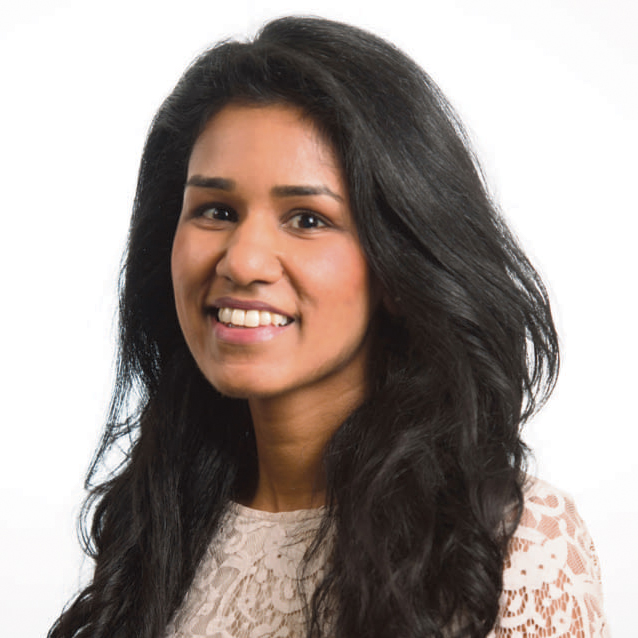There are a lot of myths around learning piano, most of which are based on what used to be the common, traditional experience of in-person lessons. This usually meant sitting beside a tutor, focusing learning on classical music and lots of boring exercises... and horror stories of having the piano lid put down on your fingers if you made a mistake. This is according to Mark Deeks, who has more than 20 years’ experience in the music industry – working as a musical director, pianist, arranger and teacher. Regardless of how easy it is to learn piano, this kind of experience is often counter-intuitive to learning.
Many of these experiences have put people off playing an instrument that they would have loved to play for decades. “I think it’s a crying shame. If someone wants to learn to play pop songs there’s not much point in making them play Chopin. You don’t need to play endless scales and spend hours learning Mozart if you don’t want to! If you want to play Bruno Mars songs to chill out after work then find some place where you can do that.” Deeks says. Indeed, last year's top piano tune was Imagine, by John Lennon. We quizzed him about how easy it is to learn the piano...
Is learning the piano easy compared to other instruments?
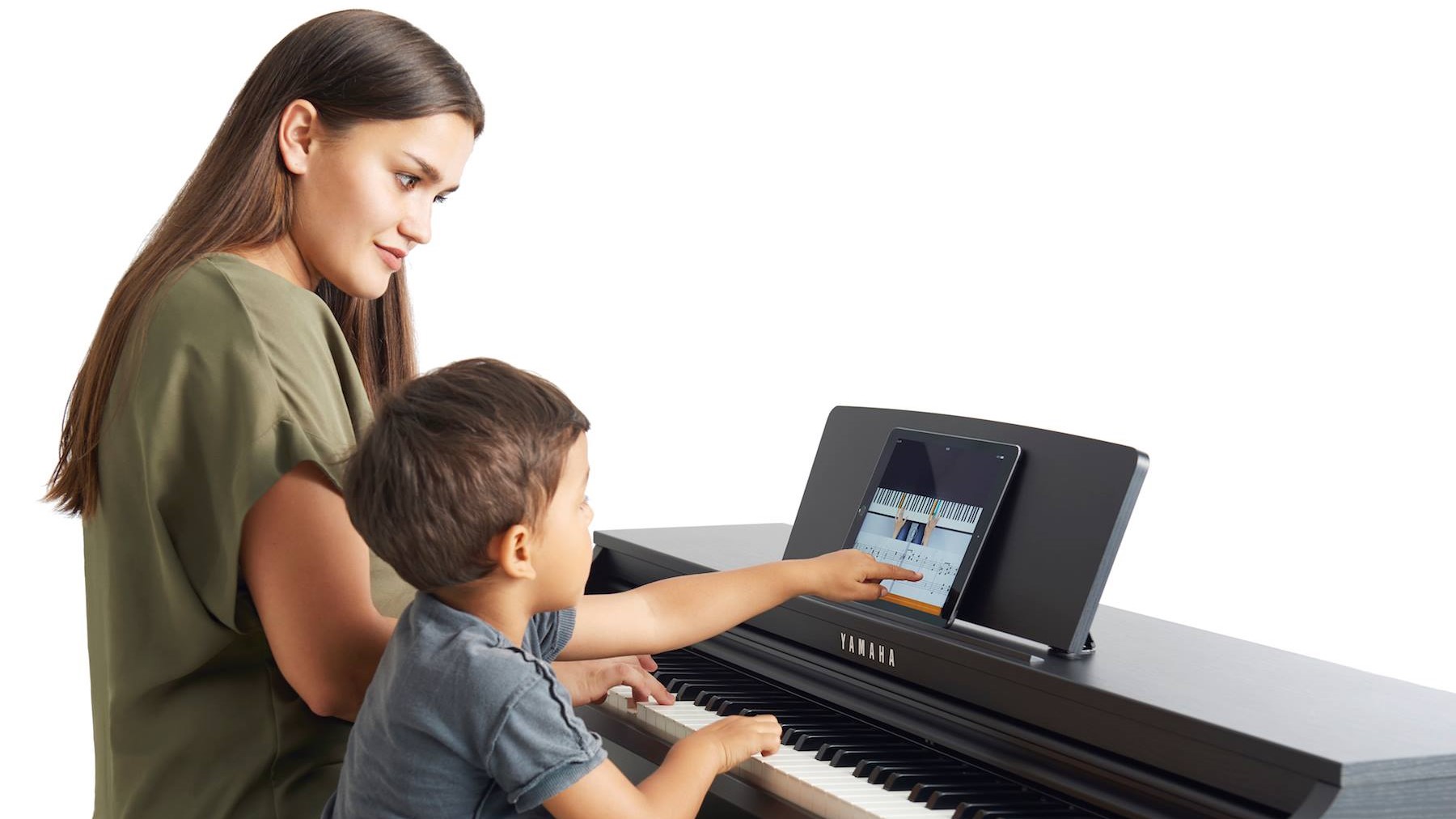
“It may not be considered easier, but piano does have one huge advantage over a lot of other instruments – anyone can get a sound out of it!” says Mark, author of NOT Another Piano Book: How Everything That Stopped You Playing Like a Piano Legend So Far… Shouldn’t.
Whereas beginners learning woodwind and brass instruments, for example, have to battle the technique needed to produce a sound when they first start, with the piano, you just need to hit it! Whereas string instrument beginners need to go through the process of learning how not to produce a scratchy, out-of-tune sound, piano comes ready to go with notes ready in tune (unless, of course, your piano needs tuning) so there is definitely an advantage – at least at the beginning – when it comes to learning piano.
From a technical point of view, piano has its benefits too, which could speed up the learning process. Mark explains: "There is also the advantage that piano is really easily laid out visually – in terms of being able to see all the notes. Unlike guitar, for example, each note only comes in one place on a piano".
How easy is it to learn online?
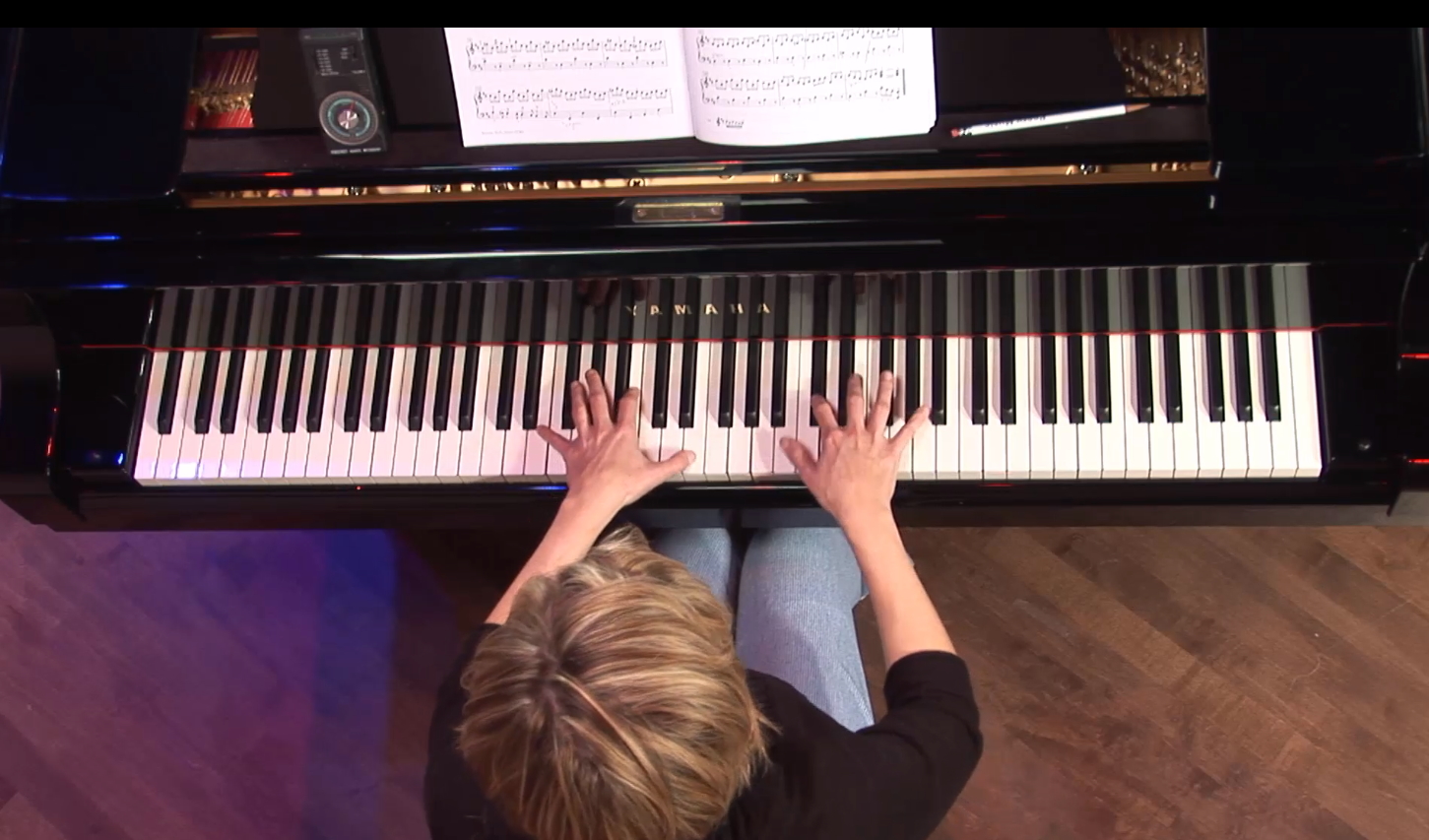
There will be wildly different opinions on this, but learning piano online has huge advantages – both for tutors and learners – which is why Mark was doing it that way even before the pandemic.
Technology affords new modes and methods. “I can show my students multiple camera angles of my hands, I can show them a software keyboard at the same time that has keys lighting up when I press the real piano to facilitate making it easier to see what I’m doing. Students can also pause and rewind my pre-recorded videos as many times as they like, and there are no expectations to be at a lesson at a certain day or time, plus of course there is no travelling.”
His students can ask questions and post videos for personalized feedback as many times as they want, so there is no need to wait a week or a fortnight for their next lesson with a teacher if they need help.
“And by having a community of people all over the world who are learning just like you, where learning an instrument can sometimes be a solitary, lonely experience, now you feel part of something and that can be hugely beneficial for your motivation and enjoyment,” he adds.
Keen to give it a try? Here is a selection of the best piano lessons online.
Is it more difficult to learn piano as an adult?
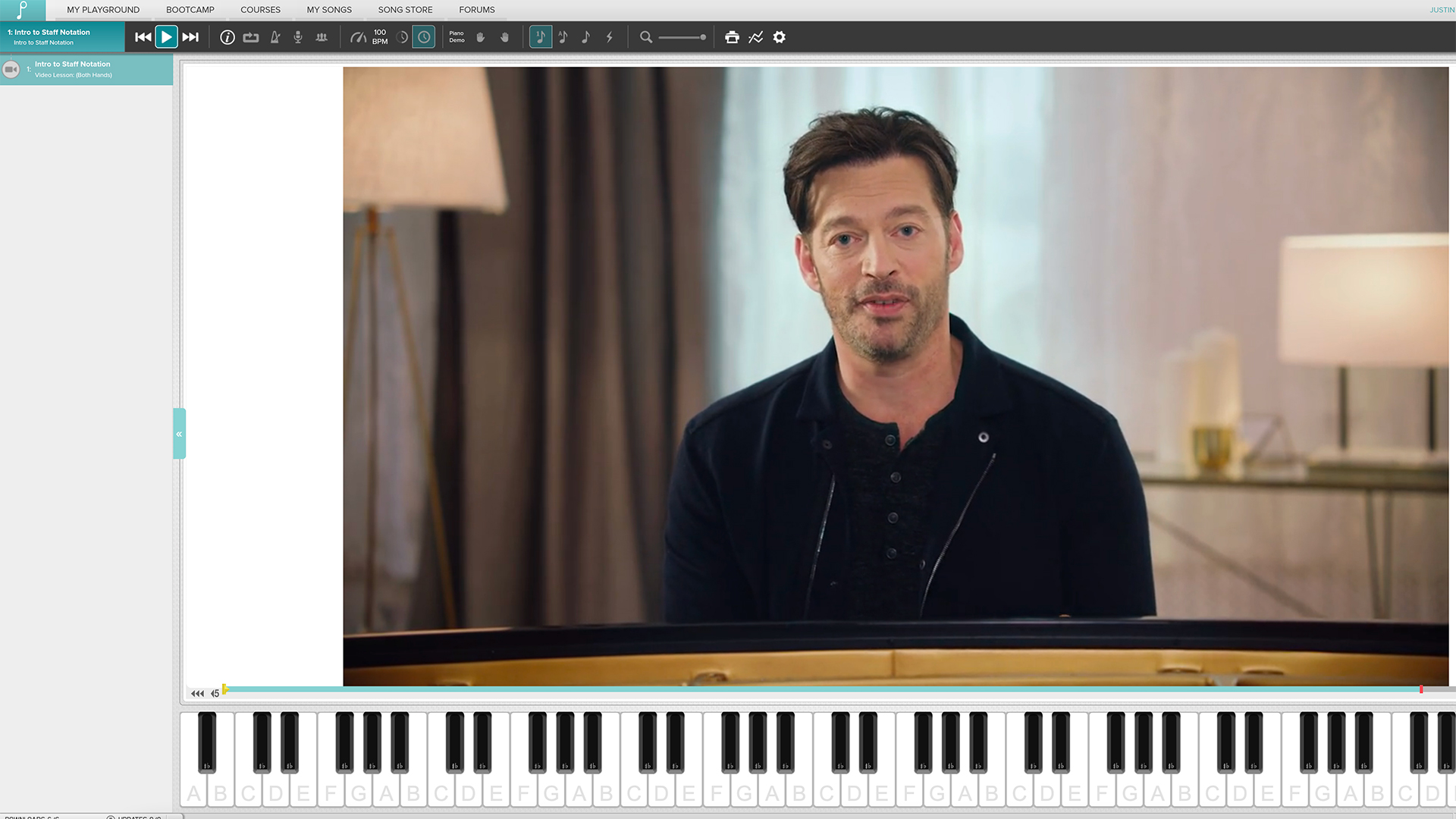
This is one of the biggest myths that Mark finds he has to battle. “You are not too old! I have clients playing in their 80s, having lots of enjoyment and engaging with a hobby that helps keep them agile both physically and mentally.”
The idea that it’s harder to learn as an adult comes back to this notion people have that it is a hard instrument that takes many years to get good at and get pleasure from. Mark argues that the benefits of playing piano come from day one – regardless of whether you are any good at the actual playing or not – and it’s important to focus on that first and foremost.
“Playing piano is a great stress reliever – trust me, it is impossible to worry about the stresses and strains of life whilst you are trying to figure out what note or finger to use! I have clients telling me they sleep better, that it is their equivalent of meditation and that they feel their mental health has improved, all whilst still being complete beginners. Is it tricky to master? Maybe. But is it hard to feel the benefit of making a little piano part of your day? Absolutely not.”
What are the best ways to start learning piano?
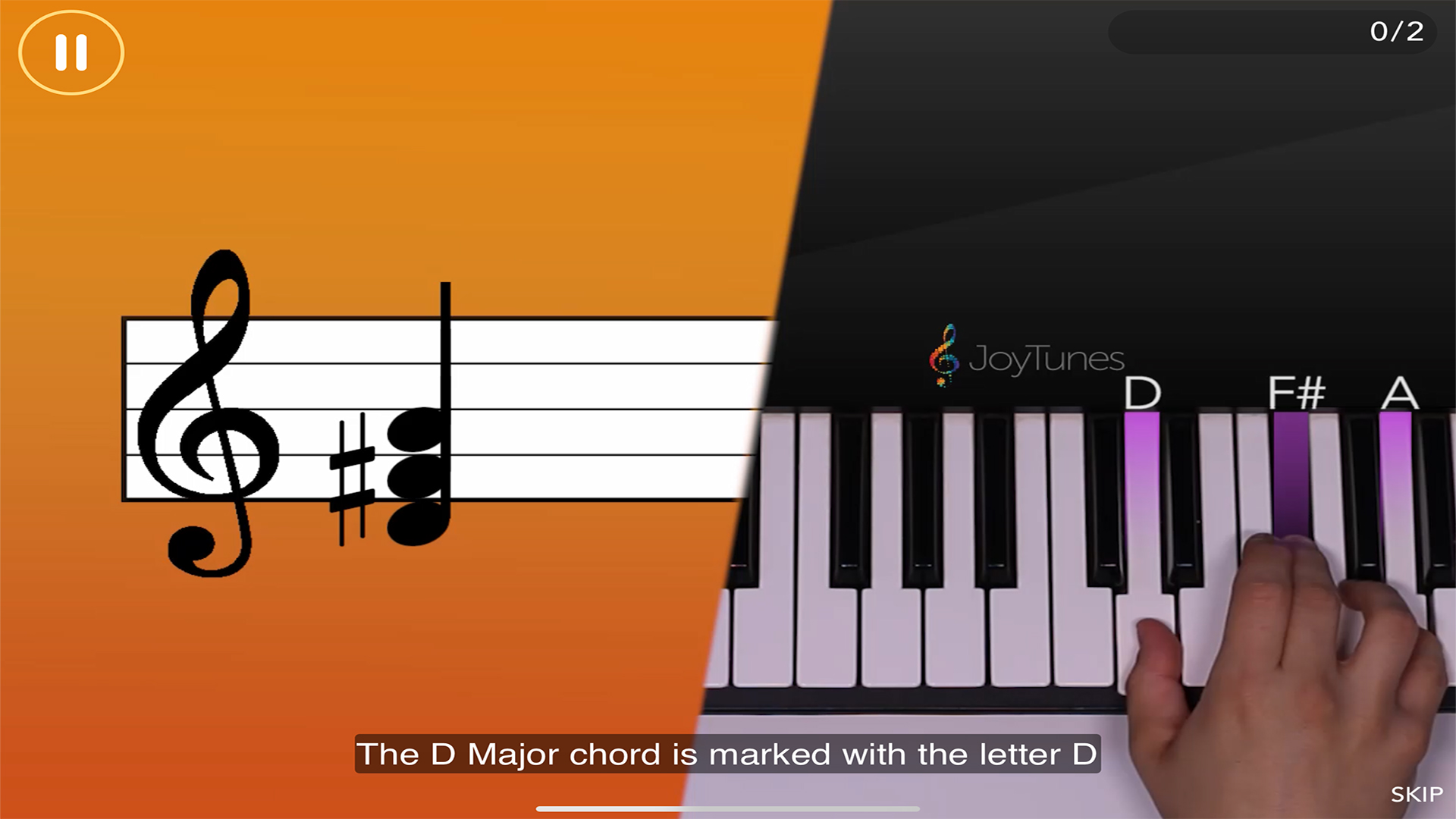
All you need is 15 minutes a day. And a piano or keyboard. “You do not need to commit hours a day. In fact, as a beginner, I think that does more harm than good,” says mark. Attach 15 minutes of piano to something you know is going to happen – perhaps the time when you wake up, after you've brushed your teeth, after your morning coffee, on your lunch break, after you’ve put the kids to bed or just before you go to sleep. Whatever works for you.
Then make sure what you’re playing is fun: if you want to learn your favorite pop songs, don’t hire or follow a teacher that teaches Bach. “There’s more than one way to do this – find the way that works for you and puts a smile on your face. Music is supposed to give your soul a lift, and your spare time is precious – use it wisely,” Mark concludes.
If you want to know more about Mark, his book, or his teaching then you can check out his personal website for more information.

